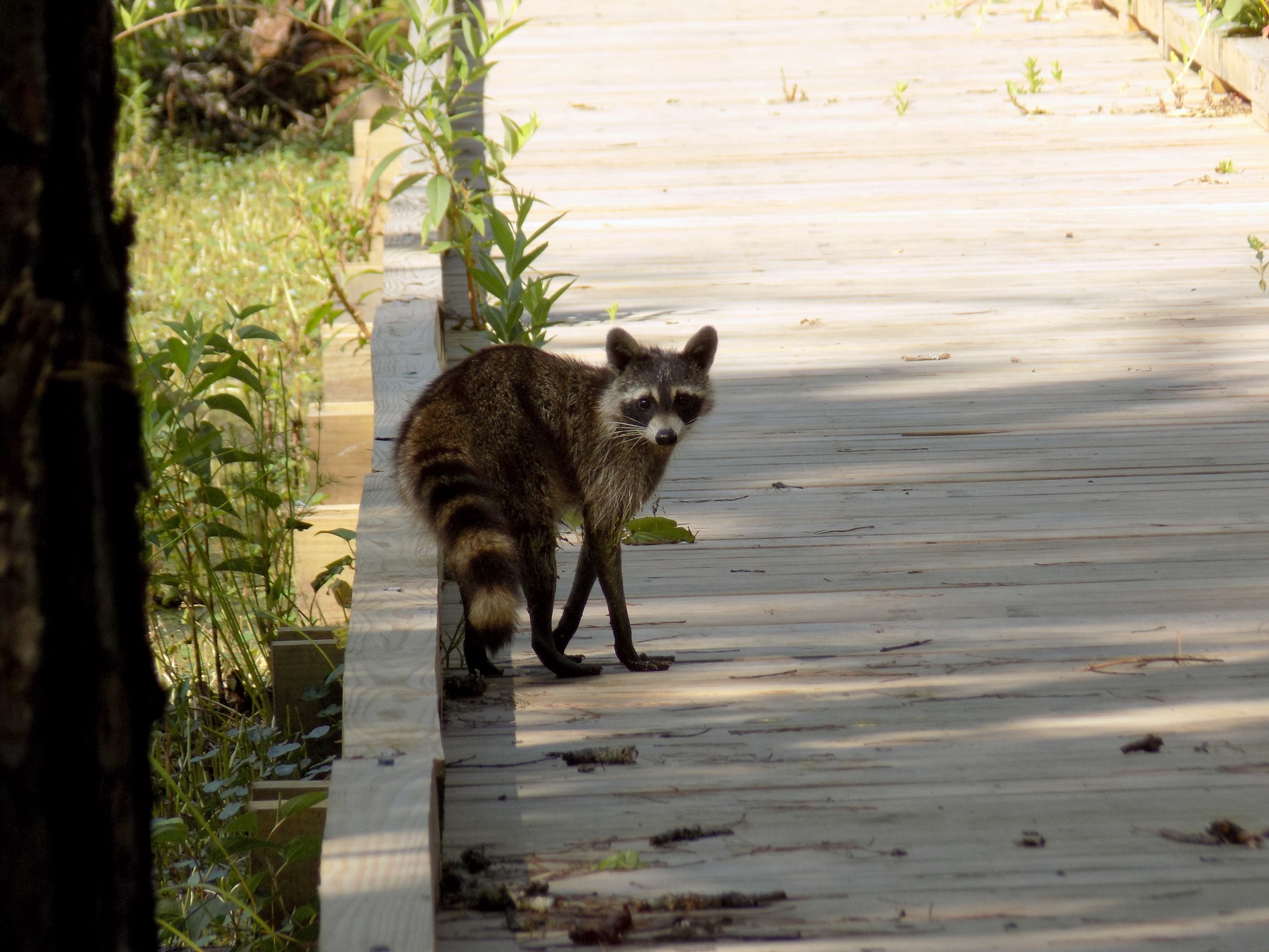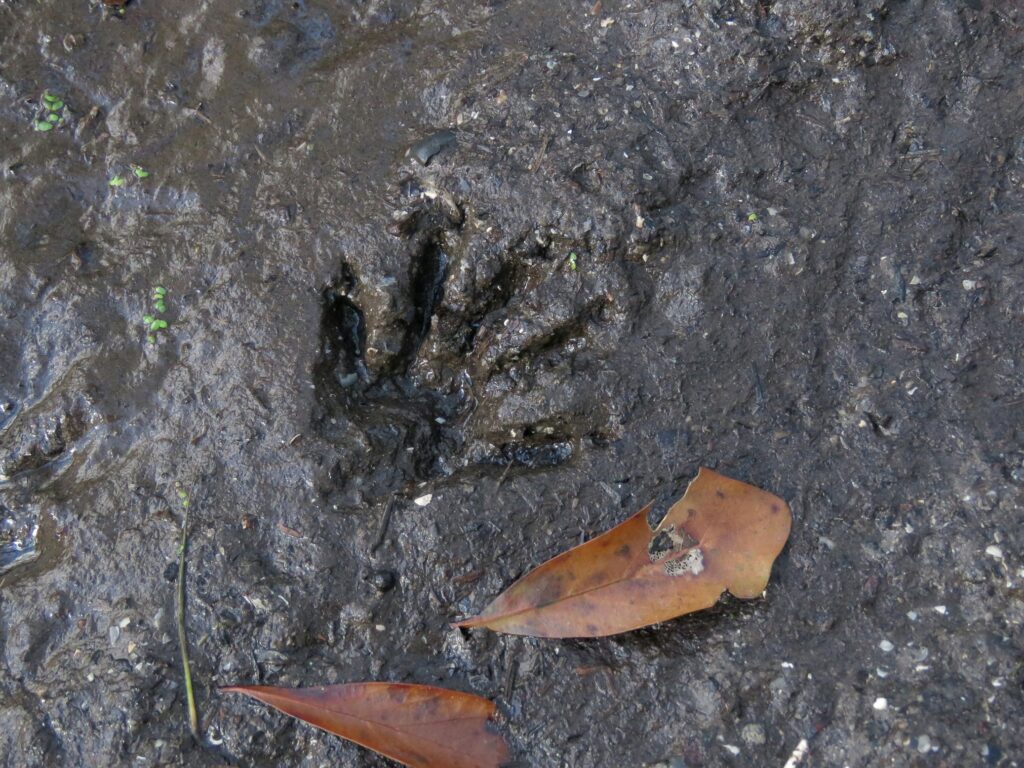


For Flora and Fauna Friday this week we have the banded bandit of the woods in our custody. No, that’s not Santa coming down the chimney it’s the Common Raccoon (Procyon lotor).
The Raccoon is an intelligent, dexterous, omnivorous, nocturnal, highly-adaptable, generalist mammal found throughout the US and Mexico. They are found in practically every habitat in the state, from barrier islands to mountain forests to bottomland swamps to the middle of the city. The average Raccoon here in the south is roughly the size of a house cat and weighs about 10 to 15 pounds. Their coat is a dark grayish-brown with a fluffy tail ringed by black bands. They have a black mask across their eyes and a pale gray snout, brow, and muttonchops. They have plantigrade feet, so their tracks look like little handprints. They belong to a small family, Procyonidae, that is most closely related to Bears and Weasels.
Raccoons have an interesting habit of dipping their food in water and rolling it around in their hands called “dousing”. The behavior looks like their washing their food but that’s not actually the case. In fact, biologists aren’t fully sure why they do this but believe it helps them soften their leathery paws and better feel the texture of what they caught. They primarily douse when hunting aquatic animals and won’t bother dousing if there’s no standing water around. Raccoons have long limbs, dexterous paws, and short stiff claws that make them excellent tree climbers. Climbing a tree is a Raccoon’s primary defense against predators. They also sleep through the day in a tree hollow or the crook of a tree limb. Raccoons are most active at night where they patrol their territory hunting frogs, fish, fiddler crabs, bird eggs, and crawfish and eating any berries, nuts, or seeds they may find. They will scavenge carrion too and raid farm fields for vegetables. In urban areas, they also pilfer bird feeders, steal pet food, and scavenge from trash cans. Raccoons are known for their intelligence and studies indicate that they’re as smart as some of the lesser primates. Their intelligence and dexterity, combined with their omnivorous diet, makes them highly adaptable. They’re one of a few native species that have taken to urban life with a shine. They can quickly learn how to undo latches, open closed containers, scale buildings, and remember who in your neighborhood feeds an outside cat, has a fig tree in their backyard, throws out half eaten pizza, or has a hole in their attic.